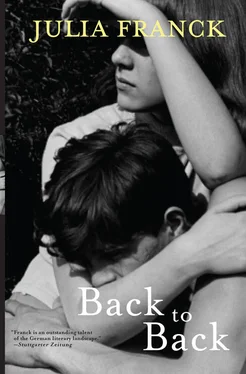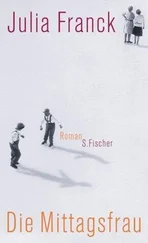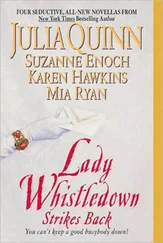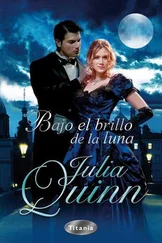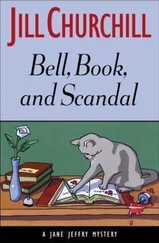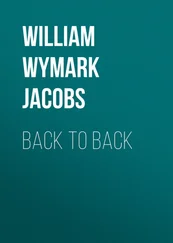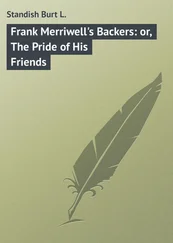Julia Franck - Back to Back
Здесь есть возможность читать онлайн «Julia Franck - Back to Back» весь текст электронной книги совершенно бесплатно (целиком полную версию без сокращений). В некоторых случаях можно слушать аудио, скачать через торрент в формате fb2 и присутствует краткое содержание. Год выпуска: 2013, Издательство: Grove Press, Жанр: Современная проза, на английском языке. Описание произведения, (предисловие) а так же отзывы посетителей доступны на портале библиотеки ЛибКат.
- Название:Back to Back
- Автор:
- Издательство:Grove Press
- Жанр:
- Год:2013
- ISBN:нет данных
- Рейтинг книги:3 / 5. Голосов: 1
-
Избранное:Добавить в избранное
- Отзывы:
-
Ваша оценка:
- 60
- 1
- 2
- 3
- 4
- 5
Back to Back: краткое содержание, описание и аннотация
Предлагаем к чтению аннотацию, описание, краткое содержание или предисловие (зависит от того, что написал сам автор книги «Back to Back»). Если вы не нашли необходимую информацию о книге — напишите в комментариях, мы постараемся отыскать её.
, was an international phenomenon, selling 850,000 copies in Germany alone and being published in thirty-five countries. Her newest work,
echoes the themes of
, telling a moving personal story set against the tragedies of twentieth-century Germany.
Back to Back Heartbreaking and shocking,
is a dark fairytale of East Germany, the story of a single family tragedy that reflects the greater tragedies of totalitarianism.
Back to Back — читать онлайн бесплатно полную книгу (весь текст) целиком
Ниже представлен текст книги, разбитый по страницам. Система сохранения места последней прочитанной страницы, позволяет с удобством читать онлайн бесплатно книгу «Back to Back», без необходимости каждый раз заново искать на чём Вы остановились. Поставьте закладку, и сможете в любой момент перейти на страницу, на которой закончили чтение.
Интервал:
Закладка:
That can’t be what you want. Siegfried touched her hair, looked with admiration at her ponytail, the slightly backcombed lift of the hair above her forehead.
Ella threw her handful of water with the tadpole up in the air, as if setting a bird free to fly, and the water splashed, making Siegfried step back. She wasn’t smiling. What I want is my own business.
Horror showed on Siegfried’s face. Dominique! He reached his hand out to her, clumsily. Ella thought of a jumping jack, but her expression was serious, with an iron gravity.
Have I done something wrong? Getting no pity, he gave himself some. He stooped his shoulders, his head fell forward, his hands crushed the crown of the Marlon Brando peaked cap into a small ball. There was a tearful note in his question: Tell me, what did I do wrong?
Nothing. I don’t love you, that’s all.
You. .? His pitiful grimace showed that he didn’t doubt what she said. He was going to shed tears any moment now. Is there. . someone else?
Ella didn’t want to see it, she wanted to turn round and catch tadpoles. What was this boy thinking of? How did he come to be asking her such questions? Were they married, engaged, promised to each other? Just because they’d sometimes played at husband and wife? Because she had made up her eyes like Brigitte Bardot, and he wore a leather jacket like Brando’s? Had he thought those signs were real? Real jackets, real make-up, real love?
Dominique, he managed to say, putting out his hand to her hair, as if the memory of the film The Truth that they had seen at the cinema together last year, just before the Wall was closed, could persuade Ella to be his Brigitte Bardot again, his lover for ever. Even at the time she had wondered where love like that came from, where it was supposed to come from. Where did you get love if not by stealing it, if not by playing at it? Ella could play at it, that was all. His greasy hair shone in the sun, the bridge of his slightly reddened nose gleamed, he had a pimple on his forehead. She would never love him. Yet Siegfried couldn’t help that. She just wondered why this new Siegfried was suddenly so strange to her, seemed so ridiculous. A wild character in a leather jacket. Whereas Johnny, over the last few years, used to stand at the side of the dance floor, looking soulful, Siegfried would wink at the company, sure of victory. He had always known how to conquer Ella, at least for a dance, for an evening, for that kiss. Now he was stammering clumsily, the afternoon sun dazzled him, he had to narrow his eyes, and what he came up with, stuttering and swallowing, seemed to Ella shallow and paltry: Ella, I love you!
Even her real name, Ella, sounded empty, worth nothing, like an insubstantial screen behind which she disappeared. Had she given him false hopes, ought she to feel guilty? His reddened nose was shiny.
Ella did not pretend to feel sorry for him. She folded her arms and said nothing. On the bridge, not a hundred metres away, she saw two figures holding hands and leaning intimately close. They stopped for a moment by the handrail, then went on and disappeared behind the hazel bushes. Presumably Thomas was taking his Marie to the tram, perhaps they were on their way back to the hospital together.
Wait, begged Siegfried, as Ella moved to walk past him and wade to the bank. What can I do? Tell me. I’ll do anything.
Ella did not like obsequious people. She had often wondered what it was that Käthe liked about admirers and flatterers. How did the sculptor who portrayed the ideal of the Upright Man bear the way her friends and comrades bowed and scraped? Sometimes it was as if Käthe simply did not know when someone was pretending, she reacted so happily and openly to all attempts to win her favour.
There’s nothing to be done, Siegfried. So long! She clambered out of the water, the sand was warmed by the sun. She picked a leaf from a flowering yarrow plant and stuck it in her mouth. The hard leaf crunched pleasantly between her teeth. She climbed the slope, holding onto bushes and enjoying the warm ground, the scratchy sensation of the old blades of grass and the soft, fresh growth under her bare feet. On the bridge Ella looked around, but there was no sign of Thomas and Marie, no waiting tram, not a single car came along the street. Ella swung herself up on the handrail of the bridge and walked along it, above the Fliess. She guessed that Siegfried was watching her. If he’d asked whether she wanted to go to the cinema, who knew, maybe she’d have let him take her. She’d have slept with him too if he hadn’t wanted any romantic stuff and talk about the future.
When Ella entered the house she thought the corridor seemed gloomy. How long did it take for the cold of winter to leave the house every year? The sound of voices and laughter echoed across the yard, Käthe liked to take her guests to the studio. Smoke was still rising from the ashtrays in the smoking room. Ella knew she had to study. The exams would be in the summer. On Sundays like this, when she wasn’t working for the wardrobe mistress at the theatre, she really ought to be studying. Yes, if she could, but she couldn’t. She didn’t feel any desire to study. Someone had left his wine glass on the table half full. Ella drained it in a single draught. The door to Thomas’s room was open, just a crack. Want to play badminton? That was what Ella would ask Thomas if he was there. She opened the door, but as she had expected, the room was empty. She hadn’t won a single game against Thomas for months; last time she had thrown the racket at his head because his delight in winning annoyed her so much.
Ella almost closed the door; she didn’t want everyone to see what she was doing in Thomas’s room.
There was a full glass of water beside his bed, and an empty glass that had probably contained wine; the purple mark at the bottom had dried up. Ella looked around; maybe she’d find some trace of that girl Marie. The curtains were still drawn. Ella went over to the window on the right and moved the green fabric aside to look out into the street. A moth fluttered towards her, landed on the windowsill, flew up into the dark curtain with a faint whirr of its dusty wings.
Thomas’s bed was neatly made. It was probably this Marie’s habit to leave everything neat and tidy. Did her husband know where she spent her midday break resting between two shifts? What was it Thomas had said, she had a small child? Where was the child? With a foster-family, like the twins, in a hostel that took children during the week, or at home with the husband?
Ella knelt down and looked into the narrow space under the bed, checking what was there. Her fingers groped around until she felt paper. She pushed the water glass aside and pulled out the blue folder. Did Thomas read poems to his Marie? A sketch of a sleeping woman lay at the top of the folder. Ella recognised Thomas’s style at once; he liked red chalk, and he seldom needed more than five or six lines for a face. She recognised Marie’s eyes. A line here for her shape, the curve of a narrow hip, only a hint. A thin arm lying at her side, an almost tentative line. The drawing wasn’t finished yet, he still had to draw her breasts, her stomach, her mount of Venus. There was only one leg so far, drawn up at an angle, a leg with a slender foot. Ella couldn’t see any indication of the nakedness of her body. She turned the sheet of paper over, but he had only noted down a poem on the other side, also in red chalk. It is especially / good to couple / in red light / The image strangely blurred / strange the face. . // Endless the loneliness / smoke rises covering like a veil / In the shadow of the other / both unite! Was this Marie just a colleague or a girlfriend, a secret one? Did they undress in front of each other? The disabling of the body, the desecration of the eyes, there it was again, the sanctity of loneliness. Hadn’t he said, only a few days ago, that Marie had shown him a dying man? It was impossible to operate on that patient; he would be dissected only after death, in the cause of scientific research. Organs were removed from a dead body and thrown away, Thomas said, so next day the man would have to lie on his stretcher not only dead and naked but empty as well, before he disappeared into Hades. Zeshmendava. It was difficult for Ella to imagine Thomas touching that girl Marie, seeing her naked, undressing himself. The body was probably sacred to him, Violetta had once said, confiding in Ella, unburdening herself of her complaints. She had offered him her mouth, but he had kissed her only hesitantly, as if he were endangering gold dust. Here and there heads rise / heavy, smoky vapour / mingles with flailing / arms and legs — The quiet / cooing of birds with full crops. The next lines were crossed out with a thick pencil. Ella narrowed her eyes: Stamped underfoot on rotting ground — / cries of pleasure crunch in the / orchestra’s ecstatic raging . . Who was that poem for? Apart, on the rim of the fleshly struggle / With secret silent expectation / washing around it / Covered by metallic trumpet cries / Forced by the drums to wild stamping. Whose trumpets and drums were being brought up here? He holds his breath and sees his face / blurred by endless helplessness. . /. . And grief mingles with disgust. . What part was Thomas trying out? A strong and desperate one? When something felt strange to him he would resort to disguise, to dissembling. Madness never took him in its grasp. The madness was hers alone. Picklydipuck shnucklesuck. Magic words, spoken only to herself, with no echo, bringing no happiness. What was he afraid of, what did grief and disgust mean to him?
Читать дальшеИнтервал:
Закладка:
Похожие книги на «Back to Back»
Представляем Вашему вниманию похожие книги на «Back to Back» списком для выбора. Мы отобрали схожую по названию и смыслу литературу в надежде предоставить читателям больше вариантов отыскать новые, интересные, ещё непрочитанные произведения.
Обсуждение, отзывы о книге «Back to Back» и просто собственные мнения читателей. Оставьте ваши комментарии, напишите, что Вы думаете о произведении, его смысле или главных героях. Укажите что конкретно понравилось, а что нет, и почему Вы так считаете.
